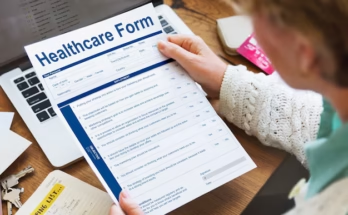Student Loan: As students gear up for the academic year in 2025, understanding how to apply for student loans is crucial for financing their education.
With rising tuition costs, student loans can be a vital resource. This article will guide you through the process, options, and tips for securing the best loan possible.
Understanding Student Loans
Student loans are funds borrowed to pay for education costs, including tuition, fees, room and board, and other related expenses. They are typically repaid with interest after the student graduates or leaves school.
Types of Student Loans
- Federal Student Loans: These loans are funded by the government and usually offer lower interest rates and flexible repayment options.
- Direct Subsidised Loans: For undergraduate students with financial need; the government pays the interest while you’re in school.
- Direct Unsubsidised Loans: Available to undergraduates and graduates; interest accrues while you’re in school.
- Direct PLUS Loans: For graduate students and parents of dependent undergraduate students; requires a credit check.
- Private Student Loans: Offered by banks and financial institutions, these loans often have higher interest rates and less flexible repayment terms. They may require a credit check and a co-signer.
How to Apply for Student Loans in 2025
Step 1: Fill Out the FAFSA
The Free Application for Federal Student Aid (FAFSA) is the first step in applying for federal student loans. Completing the FAFSA allows you to access federal financial aid, including grants, work-study, and loans.
- When to Apply: The FAFSA for the 2025-2026 academic year opens on October 1, 2024. It’s best to apply early to maximise your aid eligibility.
- How to Fill Out the FAFSA:
- Gather necessary documents (tax returns, Social Security number, etc.).
- Create an FSA ID for electronic signature.
- Complete the online form at fafsa.gov.
Step 2: Review Your Financial Aid Offer
After submitting the FAFSA, schools will send you a financial aid offer, detailing the types and amounts of aid you qualify for, including loans. Review this carefully to understand your options.
Step 3: Accept Your Loans
Decide which loans you want to accept. You’re not obligated to take the full amount offered, and you should consider your needs carefully.
Step 4: Complete Loan Entrance Counselling
Before receiving federal loans, you must complete entrance counselling to ensure you understand your responsibilities, repayment options, and how interest works.
Step 5: Sign the Master Promissory Note (MPN)
The MPN is a legal document in which you agree to repay your loans. You’ll need to sign this to receive your funds.
Tips for Managing Student Loans
- Understand Your Loan Terms: Know the interest rate, repayment period, and any fees associated with your loans.
- Create a Budget: Track your spending while in school to avoid unnecessary debt.
- Consider Repayment Plans: Federal loans offer various repayment options. Explore Income-Driven Repayment (IDR) plans if you anticipate financial difficulties.
- Explore Loan Forgiveness Programs: Certain professions may qualify for loan forgiveness after a set number of payments. Investigate options based on your career goals.
- Stay Informed: Keep abreast of any changes to federal student aid policies or loan terms, especially in 2025, as new legislation may affect borrowers.
Common Questions About Student Loans
1. What is the average student loan debt?
As of 2023, the average student loan debt for graduates in the U.S. is around $30,000. This amount can vary significantly based on the type of institution attended and the degree obtained.
2. Can I refinance my student loans?
Yes, refinancing can be a smart choice if you want to lower your interest rates or change your loan terms. However, be cautious, as refinancing federal loans into private loans may result in the loss of federal protections.
3. What happens if I can’t repay my loans?
If you’re struggling to make payments, contact your loan servicer immediately. They can help you explore deferment, forbearance, or alternative repayment plans.
(FAQs) about applying for student loans in 2025:
1. What is the FAFSA, and why is it important?
The Free Application for Federal Student Aid (FAFSA) is a form that students must complete to qualify for federal financial aid, including grants, work-study programs, and federal student loans. It determines your eligibility based on financial need.
2. When should I complete the FAFSA for the 2025 academic year?
You can complete the FAFSA starting October 1, 2024. It’s advisable to apply as early as possible to maximise your aid eligibility.
3. What types of student loans are available?
There are two main types of student loans: federal student loans, which are funded by the government, and private student loans, offered by banks and financial institutions. Federal loans generally have better terms and lower interest rates.
4. How do I know how much I can borrow?
Your financial aid offer from your school will detail the types and amounts of aid you qualify for after you submit your FAFSA. Federal loan limits vary based on your year in school and dependency status.
5. What is the difference between subsidised and unsubsidised loans?
Subsidised loans are awarded based on financial need, and the government pays the interest while you’re in school. Unsubsidised loans are available to all students regardless of need, but interest accrues while you’re in school.
6. Do I need to complete loan counselling?
Yes, before receiving federal student loans, you must complete loan entrance counselling. This ensures you understand your loan terms and responsibilities.
7. Can I change my mind about accepting a loan?
Yes, you can choose to accept only certain loans from your financial aid offer or decline loans altogether. It’s essential to consider your financial needs carefully.
8. What should I do if I can’t repay my loans?
If you’re having trouble making payments, contact your loan servicer immediately to discuss options such as deferment, forbearance, or alternative repayment plans.
9. Is loan forgiveness available?
Yes, certain professions may qualify for loan forgiveness programs after meeting specific requirements, such as making a set number of qualifying payments while working in a public service job.
10. How can I manage my student loans effectively?
Create a budget, understand your loan terms, explore different repayment plans, and stay informed about any changes in federal student aid policies to manage your loans effectively.
Conclusion
Applying for student loans in 2025 can seem daunting, but with the right information and preparation, it can be a manageable process.
Start early, understand your options, and take control of your financial future. By following the steps outlined in this guide, you can secure the funding needed to achieve your educational goals.



